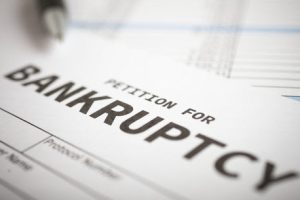The Trustee Is Not…

Indiana and Illinois both have rather generous bankruptcy exemptions, so most debtors get to keep their homes and retirement accounts, even in a Chapter 7. However, ancillary assets like rental houses or second vehicles are sometimes more difficult to protect under either the standard or wildcard exemptions. Sadly, some people do not file necessary bankruptcies because they fear losing these assets.
But, debtors do not automatically forfeit nonexempt assets. Instead, the trustee (court-appointed person who oversees the bankruptcy on the judge’s behalf) only has a responsibility to examine the non-exempt asset and determine if its seizure and sale would benefit the creditors. In many cases, there is no such benefit and no such seizure, largely because of what the trustee is not.
…A Real Estate Agent
Assume that in addition to her home, Debra Debtor owns a somewhat older house in a neighborhood outside Chicago. The tax appraiser’s value is $100,000 and she owes an additional $75,000 on the mortgage. Because of her recent financial problems, Debra has been unable to perform maintenance and the house has fallen into disrepair. Unless she makes substantial improvements, no buyer will offer enough money to allow her to pay off the mortgage. She files bankruptcy and lists the house on Schedule A as a non-exempt asset.
The trustee reviews the schedules, immediately notices the non-exempt house, and initially starts preparing a motion for turnover. But after running the numbers, the trustee has second thoughts. A few months later, Debra gets a letter from the trustee that says she can keep the rental house. What happened?
As a rule of thumb, an as-is real estate cash sale, which is basically a house’s “garage sale value,” net about 65 percent of the house’s fair market value. So, if the trustee seized Debra’s house and sold it straightaway, the creditors would lose $10,000, because the sales proceeds would be insufficient to pay the mortgage balance. The trustee cannot take any action that is averse to the creditors’ financial interests, and taking Debra’s rent house clearly falls into that category.
…A Used Car Salesman
Further assume that, in addition to her everyday car, Debra owns an older Toyota which in decent condition, but needs about $750 in work to be saleable. She lists it on Schedule A as a non-exempt asset, and gives it a $1,500 value. Once again, the math and the trustee’s job description may work together in Debra’s favor.
At first blush, it appears that the trustee could generate a quick $750 for the creditors by seizing and selling the car. But the trustee is not a used car salesman. To obtain that money, the trustee must seize the car, make the repairs, store the car, find a buyer, carry out the sale, and distribute the money. Many trustees will decide that the payoff does not justify the effort. There is also substantial risk involved, because the trustee could be stuck with a car that no one wants to buy.
…Your Friend
The trustee may make decisions that are debtor-friendly, but the trustee is not in your corner. For that, you need an experienced bankruptcy lawyer in Chicago from the Bentz Holguin Law Firm, LLC. Call us today for a confidential consultation.
Resources:
https://www.law.cornell.edu/uscode/text/11/704
http://www.bankrate.com/finance/real-estate/sell-to-a-buy-your-house-for-cash-biz.aspx


